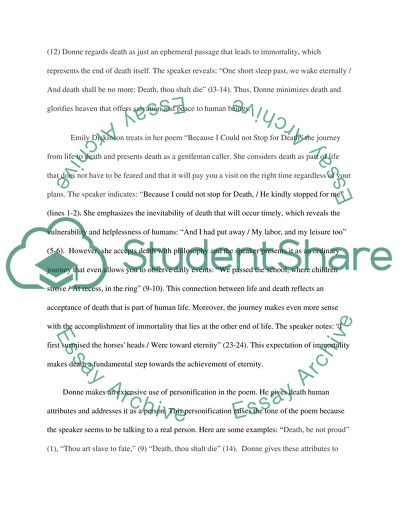Cite this document
(“Death, Be not Proud by John Donne and Because I could not stop for Essay”, n.d.)
Retrieved from https://studentshare.org/literature/1470494-death-be-not-proud-by-john-donne-and-because-i-could-not-stop-for-death-by-emily-dickinson
Retrieved from https://studentshare.org/literature/1470494-death-be-not-proud-by-john-donne-and-because-i-could-not-stop-for-death-by-emily-dickinson
(Death, Be Not Proud by John Donne and Because I Could Not Stop for Essay)
https://studentshare.org/literature/1470494-death-be-not-proud-by-john-donne-and-because-i-could-not-stop-for-death-by-emily-dickinson.
https://studentshare.org/literature/1470494-death-be-not-proud-by-john-donne-and-because-i-could-not-stop-for-death-by-emily-dickinson.
“Death, Be Not Proud by John Donne and Because I Could Not Stop for Essay”, n.d. https://studentshare.org/literature/1470494-death-be-not-proud-by-john-donne-and-because-i-could-not-stop-for-death-by-emily-dickinson.


